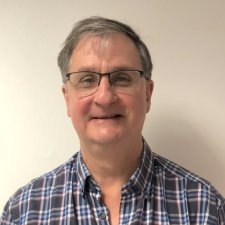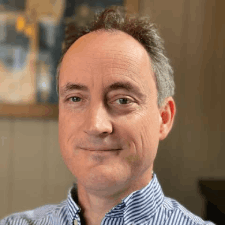Plenary and Keynote Speakers
9th International Conference on Nanomaterials, Nanodevices, Fabrication and Characterization (ICNNFC 2024)
We are pleased to announce our plenary and keynote speakers for 9th International Conference on Nanomaterials, Nanodevices, Fabrication and Characterization (ICNNFC 2024):

Dr. Leon Shaw
Illinois Institute of Technology, USA
Plenary Speaker
Dr. Leon L. Shaw is Rowe Family Endowed Chair Professor in Sustainable Energy and Professor of Materials Science and Engineering at Illinois Institute of Technology, Chicago, Illinois, United States. He is the founding director of NSF Center of All-Solid-State Batteries. Dr. Shaw has extensive experience in nanomaterials synthesis and processing for applications in hydrogen storage, Li-ion batteries, solid-state batteries, and structural materials. He has authored and co-authored more than 300 archival refereed publications in these areas. Among these 300+ publications 229 are journal articles and invited chapters for books and encyclopedias. His publications have been cited more than 13,600 times with h-index of 61 and i10-index of 201 (according to Google Scholar). His publications are ranked top 1.4% citations for career-long impact among all scientific fields and top 0.2% citations for career-long impact in the subfield of “materials” (based on the composite score c compiled by Elsevier). His accomplishments are recognized worldwide with many honors and awards. Dr. Shaw is a Member of EU Academy of Sciences, a Fellow of International Association of Advanced Materials, a Fellow of ASM International, a Fellow of the World Academy of Materials and Manufacturing Engineering, and a Member of the Connecticut Academy of Science and Engineering.
Topic of Keynote: Nanoscale Silicon Anodes for Next-Generation Li-ion Batteries![]() Plenary Abstract
Plenary Abstract

Dr. Richard Syms
Imperial College London, UK
Plenary Speaker
Richard Syms has been Professor of Microsystems Technology in the Department of Electrical and Electronic Engineering at Imperial College London since 1996. He was awarded BA and DPhil degrees from Oxford University in 1979 and 1982, respectively, both in Engineering Science. After postdoctoral positions at University College London, Oxford University, and the Rutherford Appleton Laboratory, he joined Imperial College in 1987 where he headed the Optical and Semiconductor Devices Group for almost 30 years. His research interests lie in electromagnetic theory, RF and optical engineering, metamaterials, sensors, and micro and nano technology. In 2001 he co-founded the Imperial College spin-out company Microsaic Systems, which developed the world’s first desktop electrospray mass spectrometers based on MEMS technology. Prof. Syms is a Fellow of the Royal Academy of Engineering, a Fellow of the Institute of Electrical and Electronic Engineers and Fellow of the Institute of Physics.
Topic of Keynote: STL NEMS in Silicon – Status and Limitations
![]() Plenary Abstract
Plenary Abstract

Dr. Colm Durkan
University of Cambridge, UK
Keynote Speaker
Colm Durkan is a Professor of Nanoengineering Science at the University of Cambridge and is also the Head of the Engineering Department. He is a fellow of St Catharine’s College. He was elected to a fellowship of the Institute of Physics in 2009 and the Institute of Engineering & Technology in 2014.
Prof Durkan has led multiple projects with industrial partners (Including Samsung, Canon, Nokia, Unilever & BP-ICAM). Most recently, he has just secured £1M funding for a project looking into methods to mitigate against bubble formation on the surface of electrodes used for Hydrogen generation – this is one of the primary factors leading to low efficiency of the process.
Since starting as a faculty member in 2000, Prof Durkan has led a research group consisting of up to 15 members, been head of the Nanoscience centre for four years (2009-2010 and 2015-2016), published over 150 papers, given over 130 talks, and developed several scanning-probe microscopes and techniques for nanoscale fabrication as well as manipulation and characterization of the electrical, mechanical and chemical properties of materials. His research ethos is wherever possible to tackle industrially-relevant problems from a fundamental perspective. He has a particular interest in functional and 2D materials as well as nano-scale electronic and molecular devices, and charge transport at nanometre lengthscales.
He has published a textbook in Nano/quantum electronics and a popular science book on Nanotechnology and is currently completing a textbook on the fundamentals of circuit analysis for electrical engineers with Cambridge University Press. He teaches courses in Electrical Engineering, Quantum Mechanics & Nanotechnology
Topic of Keynote: Graphene Nanoribbons for Bandgap Engineering
![]() Keynote Abstract
Keynote Abstract
Registration fee includes the following:
- Publication of 1 accepted paper in the proceedings. Publication of each additional paper requires a €250 EUR registration
- Buffet lunch for each day of the conference
- 2 coffee breaks for each day of the conference
- 1 banquet dinner OR cruise tour
Important information for accompanying person(s): Please be informed that the accompanying person can NOT be a co-author.
Co-authors, regardless if 1 author is attending, must pay the full registration fee.
The accompany person fee is only for spouses and/or children. Please contact us if you are unsure.
Virtual registration fee includes the following:
- Publication of 1 accepted paper in the proceedings. Publication of each additional paper requires a €150 EUR registration
- Access to all the sessions of the conference